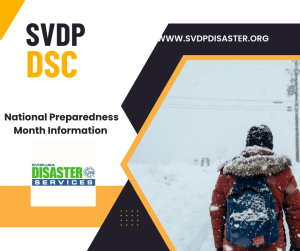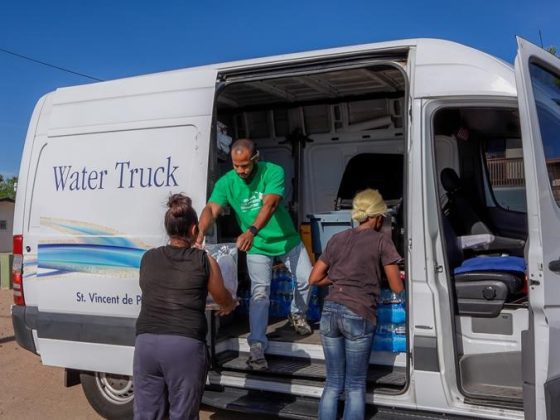National Preparedness Month Information From Disaster Services Corporation
Recently, it was reported that 246 people lost their lives from the ice storms that hit Texas last year. The United States census bureau also released that at least 1,400 people lost their lives last year due to the fact they were not prepared for extreme cold weather. Not all winter storms are created equal; but when you are properly prepared, it can mean the difference between life and death.
Blizzards and other extreme cold weather events can last from a few hours or a few weeks. It can cause frozen roadways, dangerously high winds, and raise the risk of frostbite and hypothermia.
Like hurricanes, freezing storms can cause widespread power outages, cutting off your access to heat, and increasing the likelihood that your children, elderly loved ones, and pets will get sick from the cold.
That’s why preparing for extreme winter weather is so important. The following is a list of preventive measures you can take to “winterize” your home.
- Stock your home with enough food, water, and supplies to last for days without power. Essential supplies include batteries, flashlights, radios, portable cell phone chargers, medication, pet food and supplies, and any necessary items for family members with health conditions.
- Insulate doors and windows with caulk or weather stripping.
- Make sure your smoke alarms and carbon monoxide detectors are working properly, and keep backup batteries on hand.
- Insulate walls, attic, and any water lines that run through exterior walls to keep them from freezing.
- Consider adding exterior storm shutters to your windows for extra protection from flying debris.
- When temperatures are at or below freezing for an extended period of time, keep faucets on a constant drip to prevent pipes from freezing and potentially bursting.
- Make sure you know where the main water valve is in your home in case a pipe bursts due to the cold. And schedule a family meeting to brief them on how to shut it off.
- Make sure your roof is free of leaks. The better shape your roof is in, the less the cold can get in.
- Cut down any tree branches that may break off and damage your house.
- Plan on using your fireplace to stay warm? Schedule yearly chimney and flue inspections to ensure it’s safe to use.
- Have a set of blankets and clothing stored in a water-resistant bag that can be easily accessed in an emergency.
No one ever expects their life to be turned upside-down by a natural disaster, but preparing ahead of time can make a stressful situation a bit easier! #BePrepared



